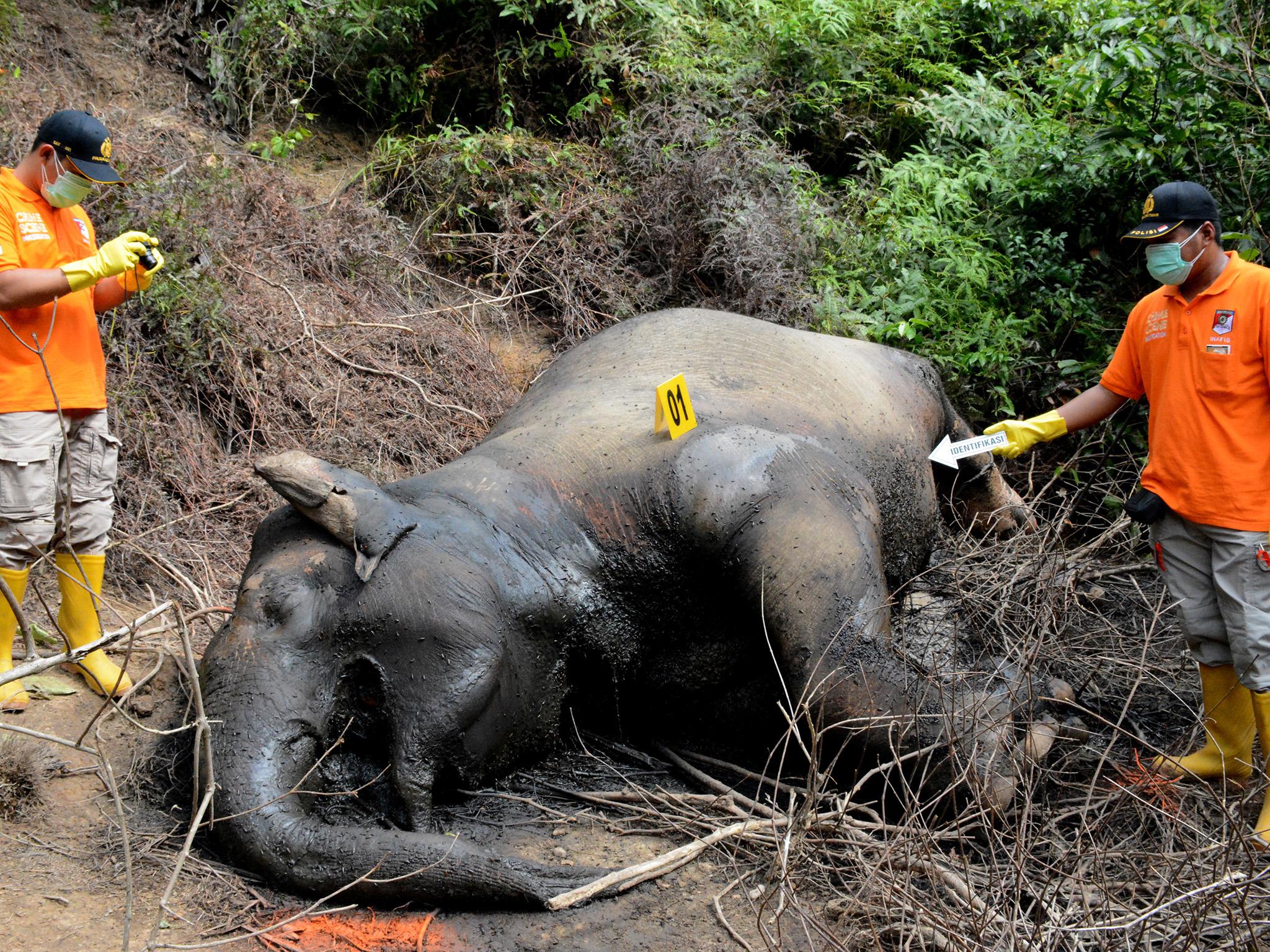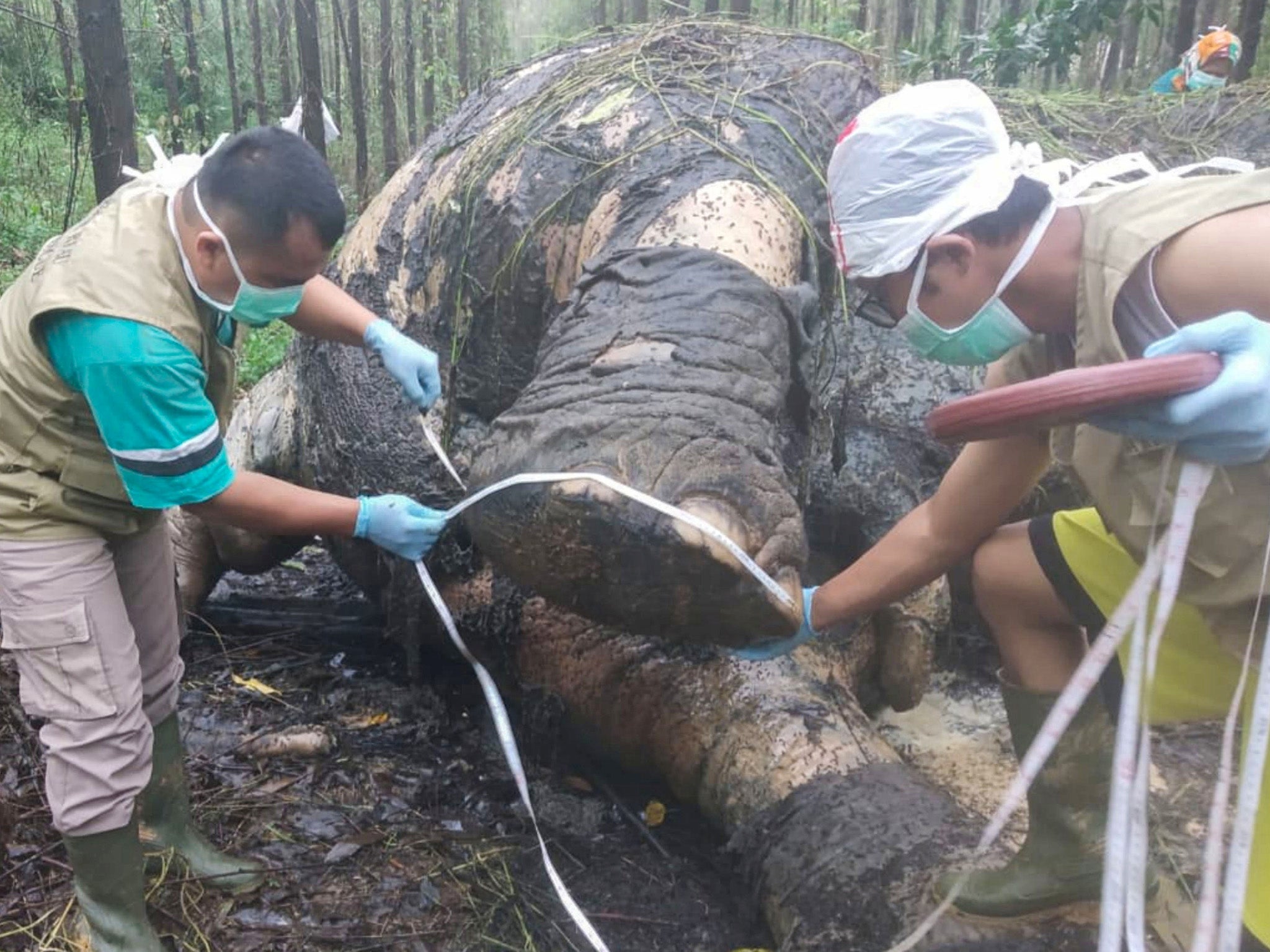Two endangered elephants found dead in a week, raising fears animals are being poisoned and electrocuted
Species on ‘brink of extinction’ loses another two members

Indonesian authorities suspect a Sumatran elephant found dead in a palm oil plantation may have been poisoned or electrocuted, marking the second time in a week a carcass of the critically endangered animal has been discovered, officials said.
Only about 2,400-2,800 Sumatran elephants are left in the world, putting them on the brink of extinction, according to the World Wildlife Fund (WWF).
The 25-year-old female elephant, which weighed three tonnes, was estimated to have been dead for about a week when found on Wednesday in the plantation in Aceh province, according to veterinarian from its Natural Resources Conservation Agency.
“There were no physical wounds, which may indicate either death by electricity or poison but to be sure it has to be based on a laboratory test,” Agus Aryanto, the agency's head, said by telephone.
Elephants frequently enter plantations in the area to feed on palm oil fruits, especially during the rainy season, he said, adding a team had this week been trying to prevent elephants straying onto human settlements.
Habitat loss and conflict with human have in recent years slashed the number of Sumatran elephants, which are found in tropical forests mainly on Sumatra and Borneo islands.
Another male Sumatran elephant was found decapitated and with its tusks removed in Riau province on Tuesday.

“Its tusks were cut off forcefully using a sharp tool,” said Heru Sutmantoro of the Natural Resources Conservation Agency in Riau. He said the elephant's separated head and trunk were lying close to the carcass.
Tests showed the 40-year-old elephant had no wounds and there was no indication of poisoning, he said.
Poaching and the illegal trade in wildlife remain rampant in Indonesia, despite efforts by authorities to crack down.
Under Indonesian law, poachers can be jailed for up to 10 years and fined up to 200 million rupiah (£11,000).
This year, a Russian man was detained at the airport on the island of Bali trying to smuggle a young orangutan in a suitcase.
Reuters
Join our commenting forum
Join thought-provoking conversations, follow other Independent readers and see their replies
Comments
Bookmark popover
Removed from bookmarks